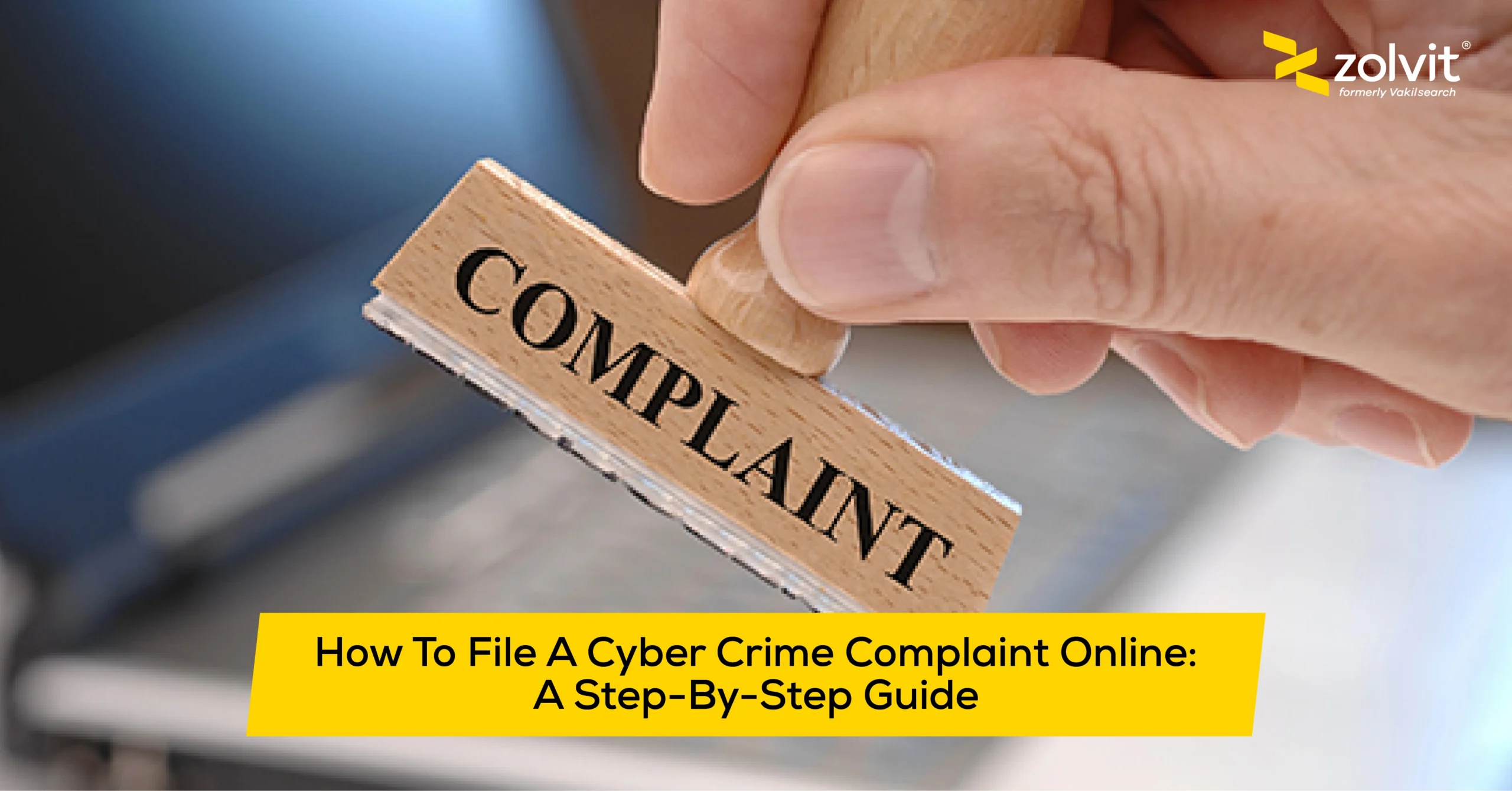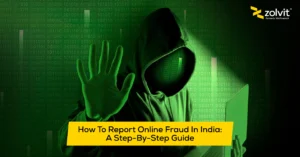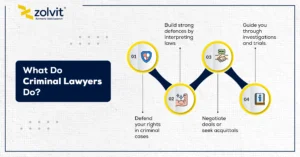Reporting cybercrime means notifying law enforcement or relevant authorities about offenses committed through digital platforms, like online fraud, hacking, or cyberstalking, to trigger an investigation and pursue legal action. Timely reporting can also aid in tracking and prosecuting offenders. The process is accessible through various portals and supports victims in addressing their concerns quickly.
In this blog, it explains how to file cyber crime complaint online. It covers legal frameworks, required documents, and prevention tips
What is Cyber Crime?
Cybercrime comprises criminal activities committed through the aid of a computer or an electronic device. These are such offences like intruding into a computer, identity theft, online fraud, and bullying or harassing persons by the means of the Internet, and the breach of data involving such persons, corporations, or states.
How to File Cyber Crime Complaint Online
To address cyber offences efficiently, the Government of India has set up a dedicated portal for victims to report incidents digitally. Below are the five key steps to file a cybercrime complaint online through the national cybercrime reporting system.
Step 1: Visit the Cybercrime Reporting Portal
- Simply visit cybercrime.gov.in.
- Alternatively, it can be accessed through the Tamil Nadu Police Department Corner.
Step 2: Select the Complaint Type
- Choose between “Cyber Crime Related to Women/Child” or “Other Cyber Crimes”.
- If reporting anonymously, you can only report cases related to Child Pornography (CP) or Rape/Gang Rape (RGR) content.
Step 3: Register and Provide Details
Other Cyber Crimes:
- Click “Report Other Cyber Crime.
- Register with your mobile number and verify it with an OTP.
- Fill the four-part complaint with the necessary details of the incident, evidence, and suspect details if known.
Crimes Related to Women/Child:
- Click “Report Crime Related to Women/Child.
- You can report anonymously or give your details.
- Fill the form with the information accurately.
Step 4: To File a Complaint
- Carefully check all submitted particulars.
- File the complaint and get a complaint registration number for tracking.
Step 5: Further Resources and Support
- Cybercrime Helpline: Just call 1930 to report a complaint regarding financial frauds.
- Citizen Financial Cyber Fraud Reporting System (CFCFRMS): This is a system for immediately reporting online frauds involving finances.
- Report Suspect Identifiers: Use the “Report Suspect” option to divulge specific details such as website URLs or WhatsApp numbers or email IDs.
- Cyber Criminal Database: Search the I4C repository for known offenders involved in cyber crimes.
- Escalation support: If you are still not satisfied with the response to your complaint, contact your State/UT Nodal Officer or Grievance Officer for further assistance.
Documents Required to File Cyber Crime Complaint Online
Right documentation ensures an easy-flowing complaint process. The choice of documentation required may differ from one type of cybercrime to another, though they generally include:
- Proof of Identity – Aadhaar, PAN, passport, or any other government-issued identity.
- Complaint Letter – This would be a detailed report of the incident with all relevant dates and details.
- Proof of Offence – Screenshots, emails, chat records, or transaction details pertinent to the actual crime.
- Financial Fraud Evidence – Bank statements, transaction receipts, and/or messages indicating unauthorised transactions.
- Device Information – Details of the affected device, such as IP addresses or logs, if available.
These documents enable the authorities to conduct a good job in the investigation of the case.
Why Should You Report Cyber Crime?
Reporting a cybercrime is fundamental to investigating and prosecuting offenders, recovering stolen assets, and creating a safer digital environment.
- Investigating and Gathering Intelligence: Law enforcement agencies, including the FBI’s Internet Crime Complaint Center (IC3), use reports to keep track of cyber threats and initiate investigations.
- Preventing Further Harm: Reports that are made in good time allow the authorities to act quickly enough to prevent the criminals from victimizing others.
- Facilitating Recovery: If this is done quickly, some funds or assets can be recovered.
- Improving Safety Online: Your report serves the purpose of increasing the safety of the internet and allowing the authorities to monitor and handle cyber threats.
- Public Information: Recognition of cybercrime helps in building awareness of risks and measures to combat them.
- Protection for Individuals and Communities: The very act of reporting cybercrime aids in protecting both personal interests and businesses from getting attacked in the future.
- Strengthening Security Measures: Incident reporting helps organisations analyze threats, improve security, and prepare for future dangers.
- Minimised Damages: Acting fast helps contain breaches, manage data loss, and limit operational disruptions.
- Encouraging Cooperation: Cybercrime reporting fosters cooperation between law enforcement, business entities, and affected stakeholders in combating threats.
- Global Law Enforcement Support: Given that many cybercrimes are transnational, reporting provides the basis for international agencies to coordinate actions against cybercriminals.
Types of Cyber Crime You Can Report Online
Cybercrime affects individuals and enterprises causing loss of money, data breaches, and threats to personal safety. Reporting these crimes aids in the actions taken by authorities to protect the online world. Here are some of the common types of cybercrimes you can report online.
- Hacking and System Damage: Were unauthorized access to a computer or computer systems causing damage or disruption.
- Online Harassment and Cyberstalking: Including bullying and threats or passing on harmful content through social media or the web.
- Financial Fraud: Scams, including phishing and identity theft, and online banking fraud cases.
- Ransomware Attacks: hackers encrypt the data and demand ransom for its unlocking.
- Cyber Terrorism: The utilisation of digital technologies to unleash fears and cause damage to societies or organisations, usually politically motivated.
- Child Exploitation: Illegally having, distributing, or producing abusive content about children.
- Employment Scams: fake job offers or recruitment frauds.
- Sextortion: blackmail based on explicit material.
- Vishing (Voice Phishing): Phone scams tricking victims into revealing sensitive information.
- Sexting Risks: Sending or receiving explicit messages, often involving minors.
- Intellectual Property Theft: Illegal copying or distribution of copyrighted content.
- Software piracy: The unauthorised sharing and usage of paid software.
- Online Drug Selling: Selling or distributing drugs over the internet.
- Electronic Money Laundering: Hiding illegally acquired funds through online transactions.
Legal Framework for Cyber Crime Reporting in India
The Indian national legal framework dealing with cyber governance is the Information Technology Act of 2000 (IT Act). The Act deals with the definition of cyber offenses, the imposition of penalties, and the regulation of electronic governance; in conjunction, cybersecurity incident reporting and response are managed by the Indian Computer Emergency Response Team (CERT-In).
- Information Technology Act of 2000: Cyber Law Foundation-Hacking, data theft, cyber terrorism, and online fraud.
- Penalties: A jail term, except that, for instance, in hacking, the penalty may be up to three years or ₹5 lakh fine.
- E-Governance Framework: Includes regulation of electronic signatures, transactions, and data privacy.
- Amendments: This has been revised from time to time to meet with the changing scenario of cyber threats.
- Section 69: This provides for government surveillance for national security and crime prevention purposes.
Prevention Tips for Avoiding Cyber Crimes
Being safe online means taking precautions and always being observant. These are some essential cybersecurity best practices that can keep your identity and finances safe:
- Strong Passwords – Develop complex passwords that you regularly update.
- Two-factor Authentication – Adds an added layer of security to accounts.
- Phishing – Avoid clicking on suspicious links and disclosing sensitive information.
- Keep Software Updated – Security vulnerabilities are remedied with regular improvements.
- Use Secure Networks – Avoid using public Wi-Fi for finance-related transactions.
- Monitor Account Activity – Regularly check bank and online accounts for unusual transactions.
Role of Law Enforcement Agencies in Cyber Crime Reporting
Cyber Crimes have really raised alarm although, with great concern, policing agencies have been made to focus their interests on the matters of offences committed through cyberspace. These agencies have established Cyber Crime Cells and the National Cyber Crime Reporting Portal to take quick action against digital crime.
Cyber Crime Cells and Their Role
- Specialised Units: These agencies manage complaints relating to cyber crime, as well as undertake forensic investigations.
- Tracking & Investigations: Cyber cells trace footprints left behind by cybercrime and identify suspects and assist prosecution.
- Public Assistance: Giving direction to victims on legal processes and preventive measures.
National Cyber Crime Reporting Portal
- Centralized Platform: Cybercrimes can be reported online by citizens at cybercrime.gov.in.
- Complaint Processing: Cases would be sent to respective state cyber cells for action.
- 24/7 Helpline: Immediate action is taken to offer help for financial fraud on the cyber crime helpline 1930.
Role of Lawyers in Cyber Crime Cases
Cybercrime lawyers protect individuals and businesses against varied digital threats. They undertake responsibilities such as:
- An attorney is an expert in providing legal guidance with regard to cybersecurity laws, digital rights, and laws associated with compliance.
- They shield intellectual property, privacy, and sensitive information from unauthorised access.
- These individuals assist their clients to handle cyber threats, fraud, and breaches in data security.
- They draft all cybersecurity policies, privacy agreements ,and data protection contracts.
- They also ensure that businesses and individuals comply with government regulations with respect to the various online activities they perform.
- They represent clients in cases involving cyber crime and victimize legal action against offenders.
- Such lawyers assess potential cybersecurity risks and recommend protective measures.
- They assist in obtaining patents, copyrights, and trademarks in the digital platform.
- They educate on cyber risks for businesses and individuals on preventing defrauding and best practices of digital safety.
With digital crimes on the rise, these lawyers specializing in cybercrimes are one of the most important cogs that ensure legal protection, compliance, and justice in the digital arena.
Conclusion
In conclusion, cybercrime reporting provides a time-efficient means for victims to receive redress and legal protection, while it aids to combat digital offenses for authorities, such as how to file cyber crime complaint online, which makes it easier for an individual or business entity to report cyber threats. Familiarity with the legal framework, documents required, and precautionary measures could elevate the cause of cybersecurity and help mitigate risks. For legal support in cybercrime cases, Zolvit offers expert guidance to help digital threats and ensure compliance with cyber laws.
- Cybercrime includes offences like hacking, financial fraud, stalking, and online harassment using digital platforms.
- Filing a complaint online is possible through cybercrime.gov.in, with options for anonymous reporting in specific cases.
- Documents required include identity proof, complaint letter, screenshots, transaction records, and device details. cybercrime.gov.in
- The IT Act, 2000 forms the legal foundation for cybercrime laws and enforcement in India.
- Reporting helps in investigation, recovery, public awareness, and global cooperation against digital threats.
- Prevention tips include using strong passwords, enabling two-factor authentication, and avoiding suspicious links.
- Law enforcement agencies, through cyber cells and helplines, support victims and take action on digital crimes.
- Cybercrime lawyers help with compliance, litigation, and digital rights protection for individuals and businesses.
- Immediate reporting increases the chance of asset recovery and limits further damage.
- Track your complaint using the reference number received upon submission.
FAQs on Cyber Crime Complaint
Does cyber crime refund money in India?
Refunds are not guaranteed, but prompt reporting may help recover funds.
How can I recover my money from a scammer?
Report immediately at cybercrime.gov.in or call 1930 with proof.
How many days do cybercrime investigations take?
It varies; simple cases may resolve quickly, while complex ones take longer.
What are the consequences of not reporting a cyber crime?
It allows criminals to continue and reduces chances of recovery.
Is it possible to report cyber crime anonymously?
Yes, especially for child exploitation and crimes against women.
Can I track the progress of my cyber crime complaint?
Yes, using the reference number provided after filing.





